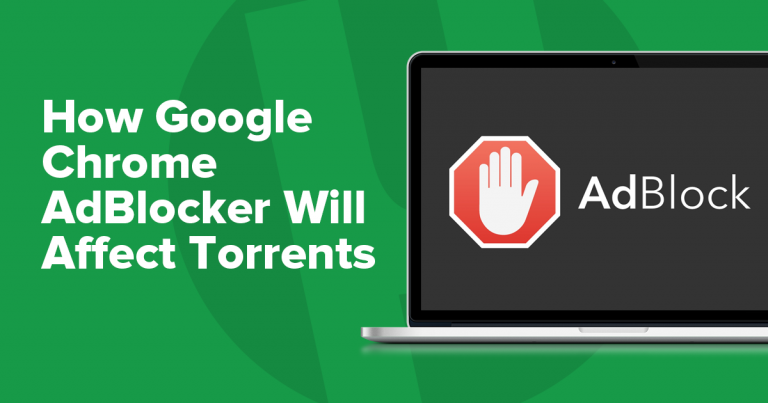How Google Chrome AdBlocker Will Affect Torrents
The people behind torrent sites believe in sharing content, and so the sites rely mainly on ads to generate revenue. While ads generally don’t bring in that much money, with Chrome’s new ad-blocker, the situation for torrent clients could get even worse.
While many users have already installed ad-blockers on their browsers, now those using Chrome will have ads blocked automatically.
This will lead to an even further drop in torrent website earnings, which is very alarming for torrent site admins, and could potentially lead to shutdowns.
For sites that are still going strong in 2025, check out our top 10 list of the best torrent sites.
What Torrent Site Owners Can Do to Generate Revenue
With decreased ad viewership, there are still some avenues of revenue that torrent site owners can explore:
1. Ask for donations
Most torrent websites already solicit donations. However, this is not a sustainable earning model. While some revenue is collected, it’s not enough to pay for hosting and hardware costs.
2. Reject ad-blockers
Many sites don’t display their content when they detect an ad-blocker on a visitor’s browser. In these cases, when the user arrives at the site, they’re informed that they need to disable their ad-blocker or else they won’t be allowed to view the site’s content. Torrent sites could choose to follow suit.
3. Offer to sell upload credit
Each time you download a torrent file, you simultaneously upload it. This way, all torrent users not only receive but provide content, which is what keeps the torrent system working.
If you upload more than you download, you end up with upload credit. For example, if you’ve downloaded 20GB and uploaded 24GB, your credit is 4GB. This allows you to download 4GB more without going into a deficit.
If you have a deficit of upload credit, you will not be allowed to continue downloading. In order to gain more credit, you will therefore have to take the time to upload content you’ve already downloaded. A second option, however, is to buy credit – which is another way for the torrent site to make money. This payment can be collected through Bitcoin or other cryptocurrencies.
4. Use Pirate Coin
A few months ago, The Pirate Bay conducted a one-day experiment, in which they added a miner to their search and category pages. Users who accessed those pages unwittingly shared their processing power with the website, which then used it to mine Monero coins. Many visitors to the site noticed a surge in their CPU usage, and only understood why when the Pirate Bay later issued a blog post about their experiment.
It's predicted that other torrent sites might collaborate with The Pirate Bay to mine a new cryptocurrency, the Pirate Coin, which could then be used to buy extra features like HD streaming or priority downloads. It could also be used to buy upload credit.
Of the four options, Pirate Coin seems to be the most sustainable. That said, the decision of whether one wants to mine should be made the user. It’s also crucial that the mining not draw so much power that the user would notice a major difference in their CPU usage.
Long-Term Effects – Will Other Websites Take Up the Pirate Coin Model?
In addition to torrent sites, many other websites gain revenue from ads, and with the new Chrome ad-blocker, their bottom lines will likely also take a dip. With few earning options available, this could potentially lead to the widespread adoption of the Pirate Coin model.
Nevertheless, there is no guarantee that all websites will exercise prudence when imposing restrictions on mining activities. This situation, coupled with the potential repeal of net neutrality and subsequent delays caused by Internet Service Providers (ISPs), has the potential to significantly decelerate internet speeds to an agonizingly slow pace.
Let’s hope that doesn’t happen.




Please, comment on how to improve this article. Your feedback matters!